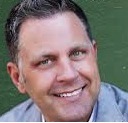 I don’t think of myself as a hero. Nor do most people. Yet I suspect that in a crisis, I might find myself doing something heroic, instinctively. If I saw someone drowning, I might—without thinking—dive into the water to help. Yet there are many less dramatic situations where I’m not sure how I would react. If I heard someone repeatedly using a racial slur. Or if I witnessed a scuffle in a movie theater over a ringing telephone. Would I ask the racist to tone it down? Would I get up and pull the two people apart and try to calm them down?
I don’t think of myself as a hero. Nor do most people. Yet I suspect that in a crisis, I might find myself doing something heroic, instinctively. If I saw someone drowning, I might—without thinking—dive into the water to help. Yet there are many less dramatic situations where I’m not sure how I would react. If I heard someone repeatedly using a racial slur. Or if I witnessed a scuffle in a movie theater over a ringing telephone. Would I ask the racist to tone it down? Would I get up and pull the two people apart and try to calm them down?
Mike Dilbeck is a motivator who believes he could help train me, and anyone else, to intervene in situations like that. The trick is to turn bystanders into heroes. Dilbeck would like to bring out the inner hero in everyone. In his view, we are all potential “everyday heroes.” It all comes down to making the right choice when faced with an emerging act of injustice or peril. We’ve all been in situations that call for someone to step in and mitigate the hurt, protest the wrong, or assist a victim. Often, it’s an instance of bullying: in school, in the work place, on the street, or on the road.
As a public speaker, Dilback tells a classic, compelling story from his youth as he describes a bully in his school:
Buster is six and a half feet tall, not really that big for a football player until you realize he’s an eighth grader. He points his finger into my face: Fag, sissy, queer! Fingers pointing, faces laughing, mouths yelling. As I start coming out of this fog, I notice that everybody has fled. I’m the only person left. Even my best friend, Mark, is now gone. He and the other bystanders have made it to class.
Yet the story isn’t over:
Every Saturday, Mark and I would hang out together. Play hoops, go to movies. After that infamous day, another Saturday happens. I go to Mark’s house, and the knob won’t turn, it’s locked. There’s a sign. Come around back. So I go down their driveway. All three garage doors are up. I see balloons and streamers and 75 of my classmates. A banner with six powerful words: Mike, We Are Proud of You.
In just four days, Mark, my best friend, put this celebration together. He didn’t intervene on Tuesday morning, but he also couldn’t live with himself. He couldn’t bear it. So he chose to do this. It was non-confrontational and unique, and he chose to intervene in his own way. In that moment, Mark became my hero.
That’s the sort of heroism anyone could easily adopt. All it requires is the ability to care about another human being.
In 2008, Dilbeck created an organization, Response Ability, designed to teach everyday heroism primarily to college students. It essentially has a program that can be implemented with groups of college students to inspire a commitment to heroic intervention, in any situation. The project has broadened to become a national initiative to empower people to intervene heroically, in any way appropriate when injustice is in the process of happening. As Dilbeck says in a recent interview, “I’m not here to say what is the problem for you. I’m not you. If you see something or you hear somebody say something and you yourself, based on your values, and your moral compass, what tells you what is right or wrong, in that moment you have a thought, this is not good, this person needs me, or that wasn’t appropriate.”
Heroism doesn’t have to involve intervention in a confrontation. It can be a quiet, carefully worded expression of concern and love for someone in the grip of an eating disorder or substance abuse. It’s simply a matter of stepping out of one’s comfort zone and doing something to make a difference in someone else’s life. As he says,
A hero is someone who does something good with no financial or personal gain. They do it for an individual or a group of people. You have to go outside your comfort zone. You can continue to walk through your own life and not know yourself as someone extraordinary. Or you can (realize that) you are a hero waiting to make the difference for someone in a critical moment in time. I have lost touch with Mark, I don’t know where he is in the world, but I do know one place he will always be: right here (points to his heart), as my everyday hero.
Do you have stories of how you or someone you know has stepped into a potentially destructive situation and helped ameliorate it? We’d love to hear about it.